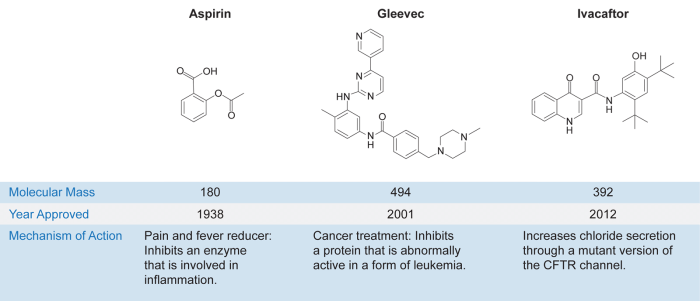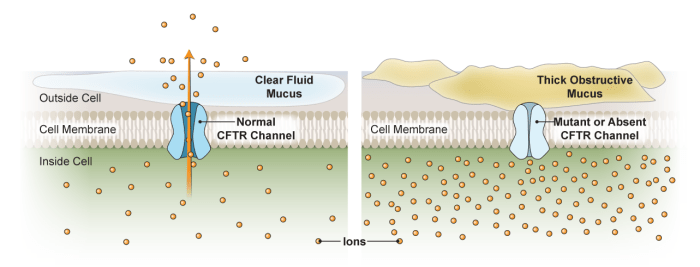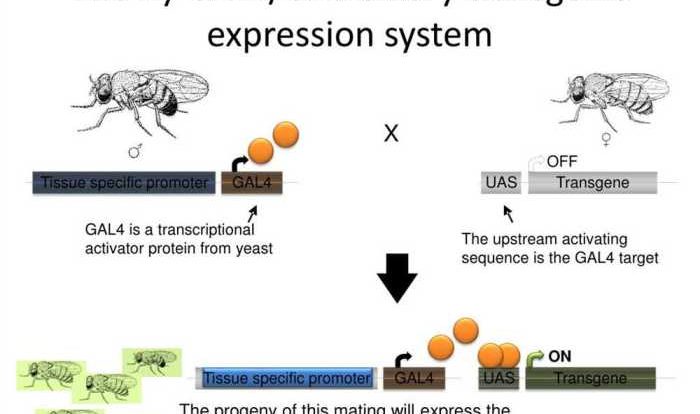HHMI central dogma and genetic medicine embark on a captivating journey into the fundamental principles that govern the very essence of life. This narrative delves into the intricate relationship between DNA, RNA, and proteins, unveiling the mechanisms that underpin the central dogma of molecular biology.
Genetic medicine, a rapidly evolving field, harnesses the power of genetic information to transform healthcare. From deciphering the genetic basis of diseases to developing personalized treatments, the impact of genetic medicine on human health is profound. HHMI’s groundbreaking research programs have played a pivotal role in advancing this field, leading to transformative discoveries and shaping the future of medicine.
HHMI Central Dogma: Hhmi Central Dogma And Genetic Medicine

The central dogma of molecular biology is a fundamental principle that describes the flow of genetic information within a biological system. It states that DNA, the genetic material, is transcribed into RNA, which is then translated into proteins.
DNA, or deoxyribonucleic acid, contains the genetic code that determines the traits and characteristics of an organism. RNA, or ribonucleic acid, is a messenger molecule that carries the genetic information from DNA to the ribosomes, where proteins are synthesized. Proteins are essential for the structure, function, and regulation of cells and tissues.
Role of DNA, RNA, and Proteins in the Central Dogma
- DNA: Stores the genetic information and serves as the template for RNA synthesis.
- RNA: Carries the genetic information from DNA to the ribosomes and facilitates protein synthesis.
- Proteins: Essential for the structure, function, and regulation of cells and tissues.
Examples of the Central Dogma in Life
- In gene expression, DNA is transcribed into mRNA, which is then translated into a specific protein.
- In viral replication, the viral RNA genome is reverse-transcribed into DNA, which is then integrated into the host cell’s genome.
- In some bacteria, DNA can be transferred directly to other bacteria through a process called conjugation.
Genetic Medicine

Genetic medicine is a branch of medicine that focuses on the diagnosis, treatment, and prevention of genetic disorders. Genetic disorders are caused by changes or mutations in the DNA of an individual.
Genetic medicine has become increasingly important in modern healthcare due to the development of new technologies that allow for the identification and analysis of genetic variations.
Types of Genetic Tests and Their Applications
- Diagnostic tests: Identify genetic mutations associated with specific disorders.
- Carrier screening tests: Determine if an individual carries a gene mutation that could be passed on to their children.
- Prenatal tests: Screen for genetic disorders in a fetus during pregnancy.
- Pharmacogenetic tests: Predict an individual’s response to specific medications based on their genetic profile.
Ethical and Social Implications of Genetic Medicine, Hhmi central dogma and genetic medicine
- Privacy and confidentiality: Concerns about the privacy and security of genetic information.
- Discrimination: Potential for genetic information to be used for discriminatory purposes.
- Eugenics: Concerns about the potential misuse of genetic information to promote selective breeding.
- Access to care: Ensuring equitable access to genetic testing and treatment for all individuals.
HHMI’s Contributions to Genetic Medicine
The Howard Hughes Medical Institute (HHMI) is a biomedical research organization that has made significant contributions to the field of genetic medicine.
HHMI Research Programs in Genetic Medicine
- Genomics: Studying the structure and function of the human genome.
- Epigenetics: Investigating how environmental factors can influence gene expression without altering the DNA sequence.
- Gene editing: Developing new technologies for manipulating the genome to treat genetic disorders.
- Personalized medicine: Using genetic information to tailor medical treatments to individual patients.
Breakthroughs and Discoveries Made by HHMI Scientists
- Discovery of the structure of DNA by James Watson and Francis Crick.
- Development of the polymerase chain reaction (PCR) by Kary Mullis.
- Identification of the genetic basis of cystic fibrosis by Lap-Chee Tsui.
- Development of CRISPR-Cas9 gene editing technology by Jennifer Doudna and Emmanuelle Charpentier.
How HHMI’s Research Has Advanced the Field of Genetic Medicine
- Improved understanding of the human genome and its role in disease.
- Development of new diagnostic and therapeutic tools for genetic disorders.
- Advanced the field of personalized medicine by enabling the tailoring of treatments to individual patients.
- Contributed to the development of ethical and social policies related to genetic medicine.
Future Directions in Genetic Medicine
Genetic medicine is a rapidly evolving field with numerous emerging trends and advancements.
Emerging Trends and Advancements in Genetic Medicine
- Precision medicine: Using genetic information to develop personalized treatments for patients with specific diseases.
- Gene therapy: Using genetic material to treat or prevent genetic disorders.
- Non-invasive prenatal testing: Screening for genetic disorders in a fetus without the need for invasive procedures.
- Population genomics: Studying the genetic diversity of populations to identify genetic risk factors for disease.
Potential Applications of Genetic Medicine in the Future
- Improved diagnosis and treatment of genetic disorders.
- Development of personalized therapies tailored to individual patients.
- Prevention of genetic diseases through early detection and intervention.
- Enhanced understanding of the genetic basis of human health and disease.
Challenges and Opportunities Facing Genetic Medicine
- Ethical and social implications: Ensuring responsible use of genetic information and addressing societal concerns.
- Data privacy and security: Protecting genetic information from unauthorized access and misuse.
- Access to care: Ensuring equitable access to genetic testing and treatment for all individuals.
- Cost and affordability: Addressing the financial implications of genetic medicine and ensuring affordability for patients.
Q&A
What is the central dogma of molecular biology?
The central dogma describes the fundamental flow of genetic information from DNA to RNA to proteins, providing the blueprint for cellular function.
How does genetic medicine impact healthcare?
Genetic medicine empowers healthcare professionals with the tools to diagnose, treat, and prevent diseases based on an individual’s genetic makeup, leading to more personalized and effective approaches.
What are the ethical considerations in genetic medicine?
Genetic medicine raises ethical concerns related to privacy, discrimination, and the potential misuse of genetic information, necessitating responsible and transparent practices.
